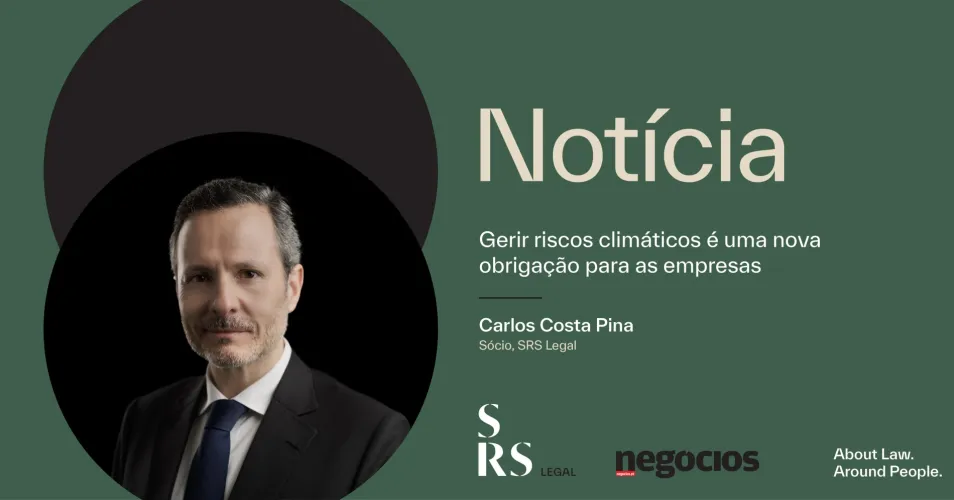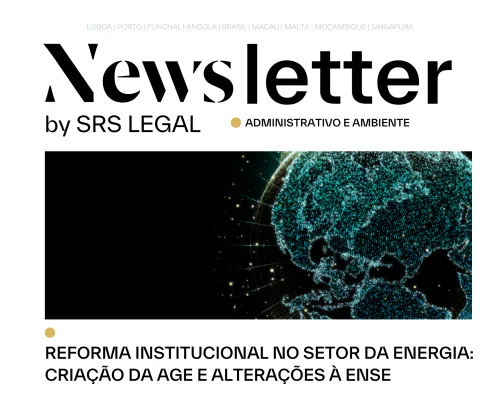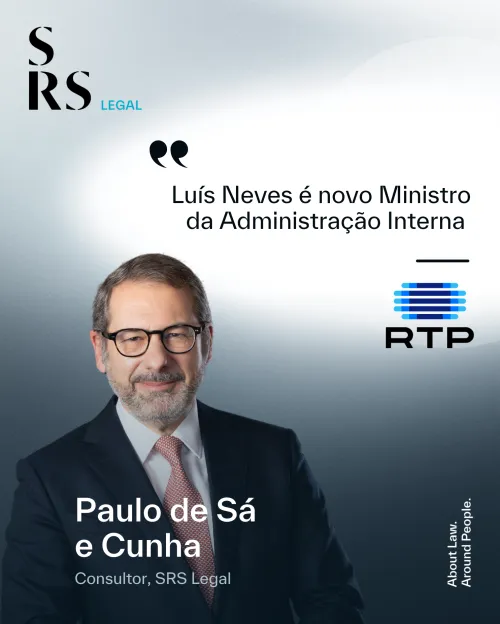Communication
"Managing climate risks is a new obligation for companies" (with Carlos Costa Pina)
Carlos Costa Pina, a Partner at SRS Legal, stresses that "for decarbonization, it is essential to act on the demand side, encouraging the design and development of
investment projects, but also on the supply side, providing credit, insurance and green financial products to finance and cover the risks of these investments. And that is the role of the market, minimizing public subsidization when necessary," he stresses.
With regard to the insurance sector, although there is no great history of insuring against catastrophic events, it is developing more and more products that allow some protection against events of this nature.
Carlos Costa Pina points out that the insurance sector has "an essential role to play in responding to demand and for its proactive role in supply". In his view, "insurance against catastrophic events should be compulsory", giving the example of seismic risk.
"The measure would be unpopular, but it is necessary. Along with financial equalization mechanisms to make premiums bearable, it will be essential to set up and capitalize preventive resources (a public catastrophic fund) to deal with events of this magnitude," he argues.
[...]
But in an open market it's not just about knowing the internal data. For Carlos Costa Pina, "data gaps affect forecasts. But uncertainty will always exist, and that's not the main problem". In his view, "the main problem is comparability, which biases investment decisions, generates information noise and can lead to fraudulent exploitation. In this regard, the EU's proposals on green claims and due diligence, under penalty of liability,
go in the right direction".





